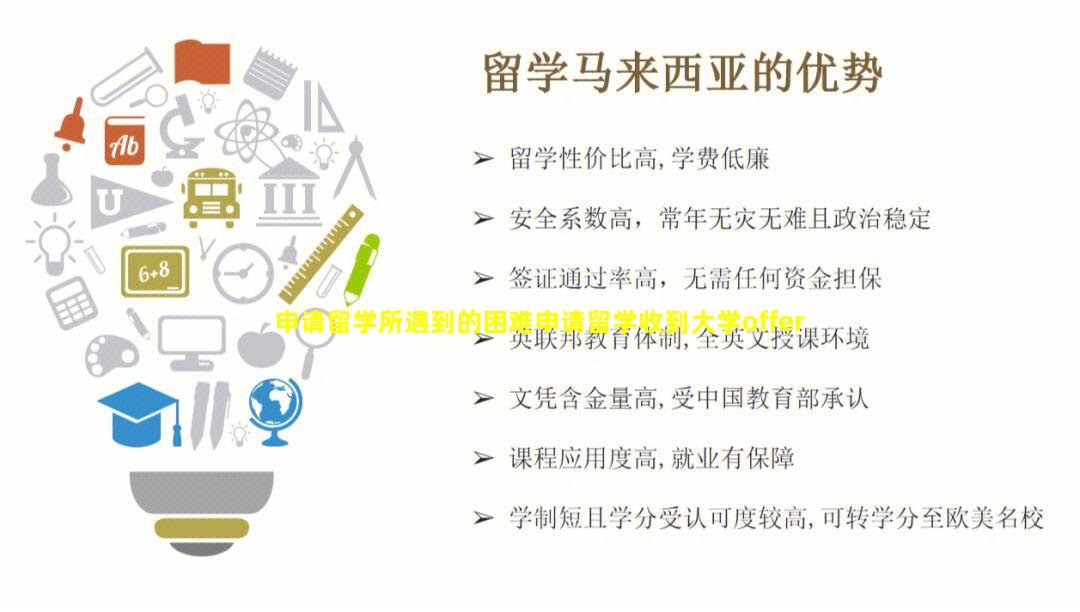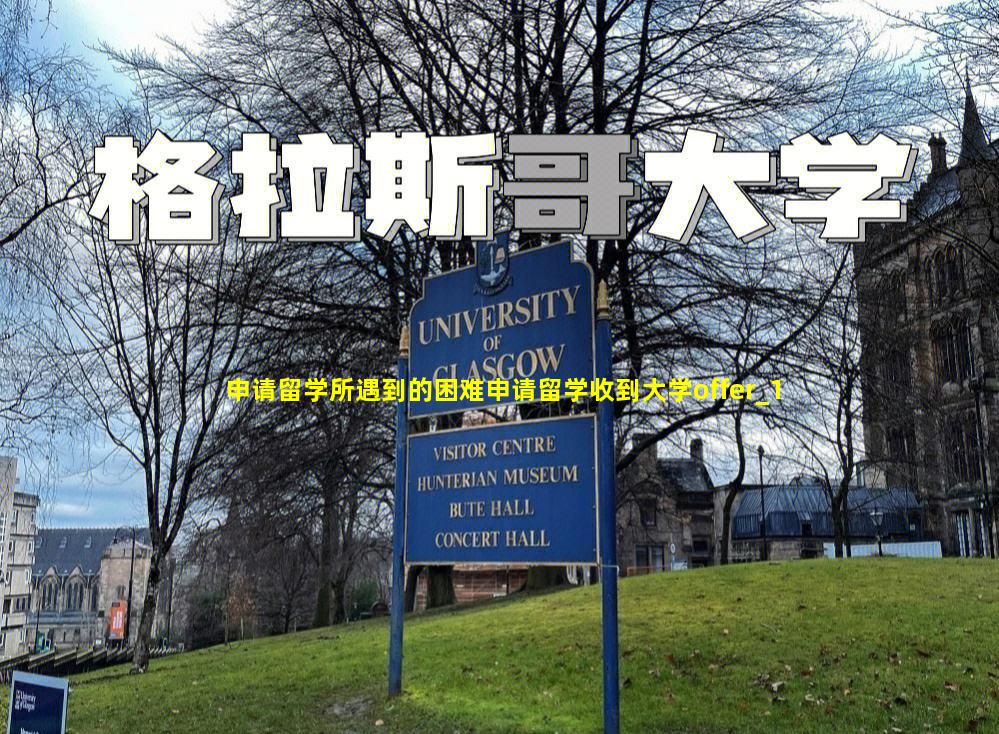 锦泰留学网
锦泰留学网申请留学是一个复杂而困难的过程,以下是一些常见的困难:
1. 语言障碍:很多留学目的地需要提供英语考试成绩,如托福、雅思、SAT等。语言能力不达标会成为申请的障碍。
2. 学术要求:留学申请需要提供成绩单和推荐信等学术材料,对于一些学术成绩不理想的学生来说,可能需要进行补充考试或改善学业表现。
3. 财务问题:留学费用通常较高,包括学费、生活费、保险等。对于一些经济条件有限的学生来说,财务问题会成为申请的困难。
4. 签证和移民程序:留学生需要办理签证和可能需要满足一定的移民程序,如面试、提供相关材料等。不熟悉程序或材料不齐全都会成为困难。
5. 文化适应:留学生需要远离家乡、面对陌生的文化和环境,适应新的生活方式和学习方式可能会产生困难。
6. 竞争激烈:留学申请是一个全球范围的竞争过程,申请者需要与许多优秀的学生竞争,包括学术成绩、推荐信、个人陈述等。
以上只是一些常见的困难,每个人的情况都可能不同。申请留学需要充分准备和解决问题,提前规划可以帮助应对困难,并增加成功的机会。
恭喜您收到大学的offer!这是一个令人兴奋的时刻,代表您成功通过了申请过程并被学校录取。
您需要阅读和理解offer信中的所有细节。注意确认录取专业、入学时间、学费和奖学金等重要信息。如果有任何疑问,您可以联系学校的招生办公室咨询。
接下来,如果您决定接受这个offer,通常需要向学校发送一份接受信函。确认信中应包括您的姓名、学生ID、录取专业和入学时间等信息。在确认接受之前,请确保您已阅读并理解学校的入学政策和要求。
同时,您还需要关注入学前的其他事项。例如,办理学生签证、申请住宿、购买机票等。确保按照学校提供的指导和时间表,及时处理这些事务。
欢迎您加入留学生群体!此时可以开始计划和准备您的留学生活。了解目的地的文化、语言和生活习惯,作好心理和实际的准备。同时,您可以与其他同学和学校的国际学生服务部门联系,获取更多相关信息和建议。
祝贺您再次获得offer,祝愿您在留学生涯中取得优异的成绩和宝贵的经历!
Studying abroad can be an exciting and rewarding experience. However, it is not without its challenges. In this essay, I will discuss some of the difficulties I have encountered while studying abroad.
One of the main difficulties I faced was the language barrier. English is not my first language, and initially, I struggled to communicate effectively. Simple tasks like ordering food at a restaurant or asking for directions became daunting challenges. I often felt frustrated and helpless. However, I realized that the best way to overcome this obstacle is through practice and immersion. I forced myself to speak English as much as possible, even if I made mistakes. Gradually, my communication skills improved, and I gained confidence in using the language.
Another difficulty I encountered was adjusting to a new culture. Customs, traditions, and social norms vary from country to country. Initially, I found it challenging to adapt to these differences. I struggled to understand the etiquette and expectations in social situations. I made cultural faux pas without even realizing it. However, I learned to be observant and open-minded. I actively engaged with local communities, participated in cultural events, and took the time to learn about the customs and traditions of the host country. By embracing the culture around me, I was able to navigate social situations more comfortably.
Academic challenges also posed a difficulty for me. The education system in a foreign country may differ from what I am accustomed to. The teaching styles, grading criteria, and assignment formats were unfamiliar to me. Additionally, the pace of learning was faster, and the workload was heavier. This required me to adapt and develop effective study techniques. I sought help from professors, classmates, and academic resources to better understand the requirements and expectations. Through perseverance and dedication, I was able to improve my academic performance.
Lastly, homesickness was a significant challenge for me. Being away from my family, friends, and familiar surroundings was difficult. There were times when I missed the comfort of home and felt overwhelmed by the changes and new experiences. However, I found solace in connecting with fellow international students who were also experiencing similar feelings. We supported each other and planned activities to make our time abroad more enjoyable. I also maintained regular communication with my loved ones back home, which helped alleviate feelings of homesickness.

In conclusion, studying abroad comes with its share of challenges. From language barriers to cultural differences, academic adjustments, and homesickness, these difficulties can be overwhelming. However, by embracing these challenges, staying determined, seeking support, and being open to new experiences, I have been able to grow and make the most of my study abroad journey.
申请留学的均分通常指的是学生在毕业或申请留学时的平均成绩。具体的均分要求会因国家、学校和专业的不同而有所差异。
在申请留学时,一般来说,学生需要提供他们的学术成绩单,其中包括各个学期的成绩和平均成绩。学生的均分将被用作评估其学术水平和能够适应留学要求的能力。
不同国家和学校对申请者的均分要求可能不同。一些高排名的学校和专业可能要求申请者有较高的均分,而一些学校和专业则相对较低。均分要求还可能与所申请的专业有关,例如一些科学或工程专业可能对数学和科学相关科目有更高的要求。

申请留学的均分要求是根据不同的学校、专业和国家的要求而定的。学生应该仔细了解所申请学校的要求,并根据自己的实际情况来评估自己是否符合要求。